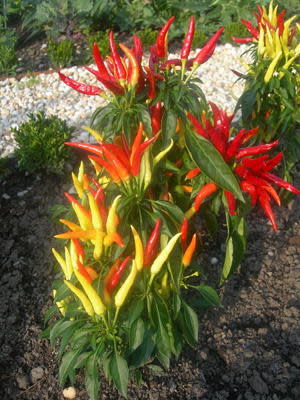 Science and Weather
Science and WeatherPlants help other plants grow by ‘chatting it up’

With science fiction stories like Invasion of the Body Snatchers and Day of the Triffids, we're no stranger to the idea of plants being able to communicate with each other (usually leading to bad things for us), but according to a new study, the near-telepathic way the plants in those stories were able to pass information might not be so far-fetched.
Researchers with the University of Western Australia, studying how different kinds of plants influence each other, have found that they may be communicating through what they call "nanomechanical oscillations" — vibrations on the tiniest atomic or molecular scale.
Previous research from this same group, published last year, showed that young corn roots made clicking sounds and that, when suspended in water, they would lean towards sounds made in the same frequency range (about 220 Hz). So, it seemed that plants do both emit and react to sound, and the researchers wanted to delve into this idea further.
[ Related: Mexican volcano spews ash and lava after explosive eruption ]
Working with chili plants in their most recent study, specifically Capsicum annuum, they first grew chili seeds on their own, and then in the presence of other chili plants, basil and fennel, and recorded their rates of germination and growth. Fennel is considered an aggressive plant that hinders the germination of other plants around it, while basil is generally considered to be a beneficial plant for gardening, and an ideal companion for chili plants.
Germination rates were fairly low when the seeds were grown on their own, lower when grown in the presence of fennel (as expected), and they were better with other chili plants around and even better with basil.
Since plants are already known to 'talk' through chemical signals and to react to light, the researchers separated newly planted seeds from the other plants using black plastic, to block any other kind of 'signaling' other than through sound. When fennel was on the other side of the plastic, the chemical effects of its presence, which would have inhibited germination of the chili seeds, were blocked. The chili seeds grew much quicker than normal though, possibly because they still 'knew' the fennel was there, 'knew' it had the potential to have a negative effect on their germination, and so they quickly got past the stage where they were vulnerable.
According to the study: "This demonstrated that plants were able to sense their neighbours even when all known communication channels are blocked (i.e. light, chemicals and touch) and most importantly, recognize the potential for the interfering presence of a 'bad neighbour' and modify their growth accordingly."
Then, to test if they could see similar effects with a 'good neighbour', they tried the same experiment with other chili plants and then with basil. When there were fully-grown chili plants in their presence, but blocked by the plastic, the seeds showed some improved germination ("partial response"). When basil was on the other side of the plastic, they found that the seeds grew just as well as when the plastic wasn't there.
"Our results show that plants are able to positively influence growth of seeds by some as yet unknown mechanism," said Dr. Monica Gagliano, an evolutionary biologist at UWA and co-author of the study, according to BioMed Central. "Bad neighbors, such as fennel, prevent chili seed germination in the same way. We believe that the answer may involve acoustic signals generated using nanomechanical oscillations from inside the cell which allow rapid communication between nearby plants."
[ More Geekquinox: Hairy bat tongue may lead to medical breakthroughs ]
Although they were certainly dangerous, some examples of talking plants, like Treebeard in Lord of the Rings or Audrey II in Little Shop of Horrors, really weren't that scary. The ones to worry about, though, are the silent ones. We can only hope that the only topic of conversation they pursue is how to best get water, food and sunshine, and that it doesn't turn to matters of getting rid of the pesky two-legged mammals that give them so much grief.
Geek out with the latest in science and weather.
Follow @ygeekquinox on Twitter!


